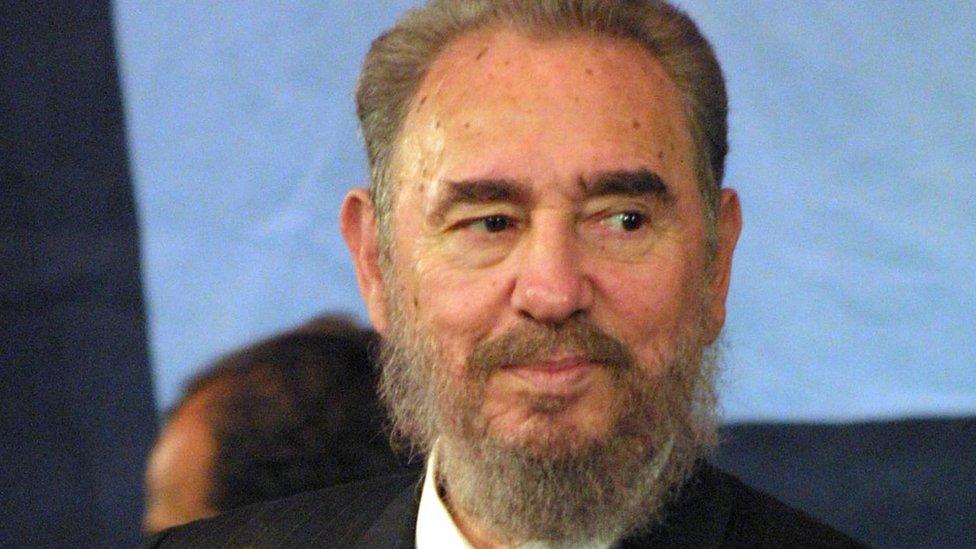Fidel Castro death: How social media reacted
- Published
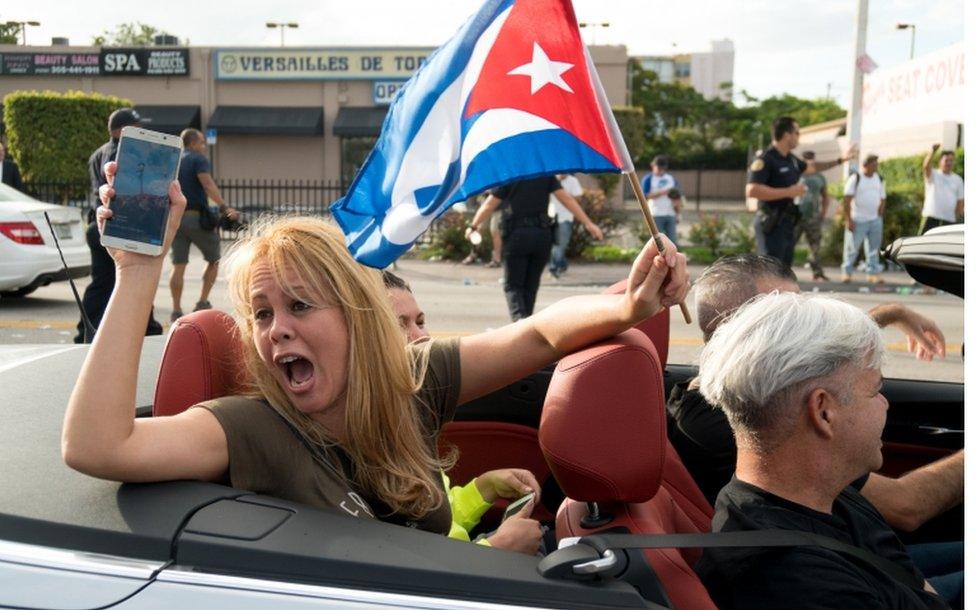
Cubans in Miami, Florida, react to the death of the revolutionary leader Fidel Castro
The death of Fidel Castro, former Cuban president and communist revolutionary, drew a fierce reaction online from those who loved and loathed him.
As news of his demise trended across the world, videos spread of Cuban-Americans celebrating in Miami.
Several images showed, external a cigar-smoking skeleton being held aloft by crowds.
Internet use is extremely restricted in Cuba, but Castro supporters overseas took to Twitter to share their grief.
The Communist Party of Australia posted a black and white shot of the leader in his younger days, laughing with fellow revolutionary Che Guevara.
It sent "Peace, solidarity and love" to Cubans, adding - "his revolution lives on!"
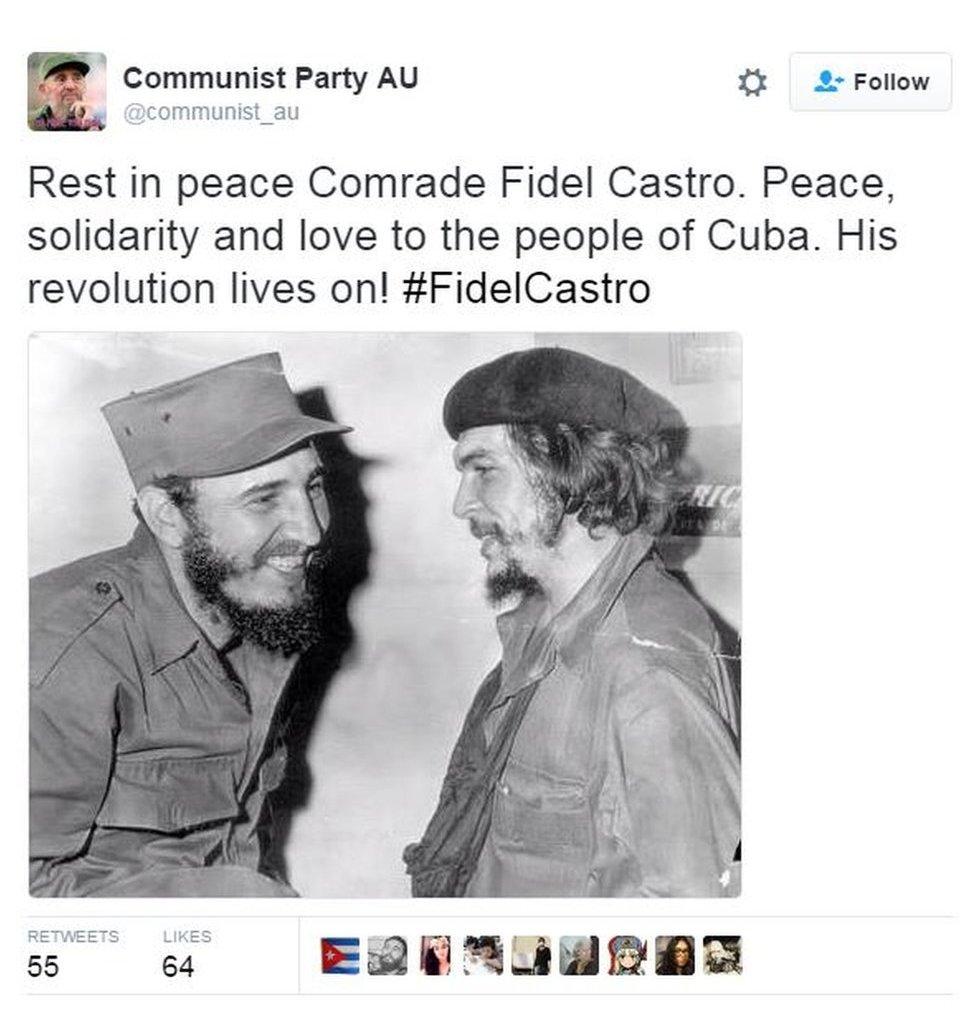
The Communist Party of Australia shared a message of condolence with Castro supporters
South African social activist and TV producer Simamkele Dlakavu wrote, external a tribute under the hashtag #RIPFidelCastro, external, which featured many more positive takes on his life and work.
"Forever grateful for the role you played in the decolonial struggle in Africa," Ms Dlakavu said.
Cuba's Fidel Castro dies aged 90
Castro's divisive legacy captivates world media
Sadness on the streets of Havana: "For us he is an idol"
Havana-based journalist Yoani Sanchez shared a Cuban perspective. Writing in Spanish, she said ordinary Cubans were showing "indifference" to Castro's death.
"Some are fired with pain, others with relief... the vast majority with a touch of indifference," Ms Sanchez tweeted, external.
Adding her own view, external, she said Castro's legacy was "a country in ruin, a nation where young people do not want [to] live".
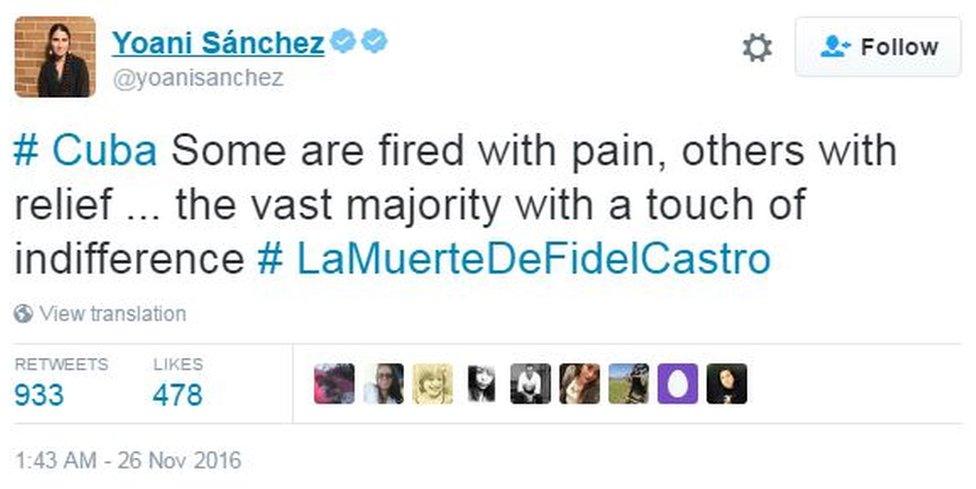
Cuban Yoani Sanchez acknowledged the mixed emotions on the island
Anti-Castro Cubans were celebrating the loss of the long-ruling revolutionary.
Cristian Crespo, who describes himself as a Cuban dissident and calls Castro a "tyrant" in his Twitter bio, posted a picture, external of crumbling multi-storey buildings in Havana.
The caption read in Spanish: "This image is not 'Life After people or after humans', this is Havana #Cuba after 57 years of Communism... Without humanity!"
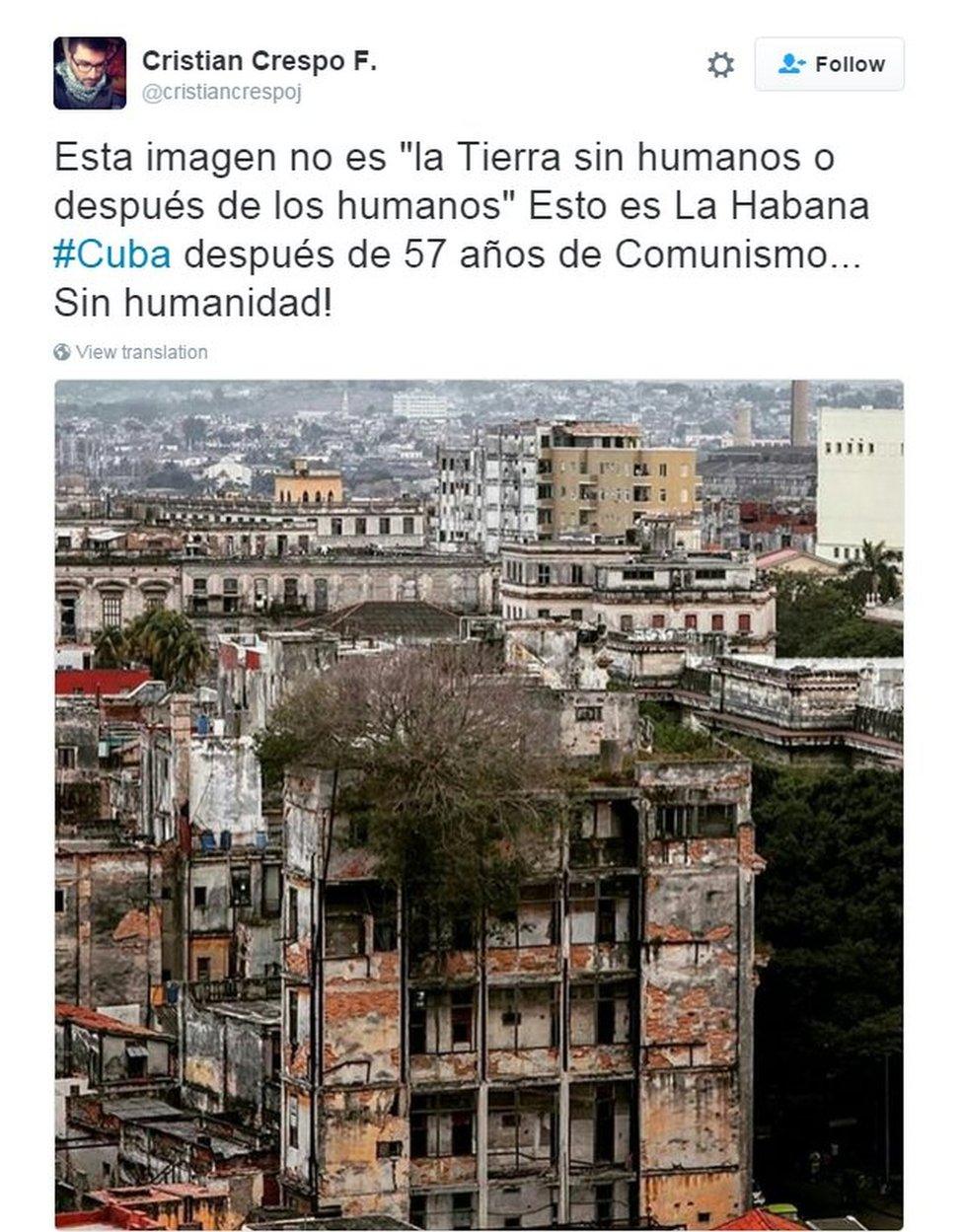
Many tweets hashtagged #Cuba, external, #Castro, external and #LittleHavana, external referred to Castro as a brutal leader who presided over human rights abuses, and persecuted Catholics and homosexuals.
Christophe Deloire, secretary general of the press freedom group Reporters Without Borders (RSF), called Castro a "predator" against journalistic freedom, saying he jailed journalists with impunity.
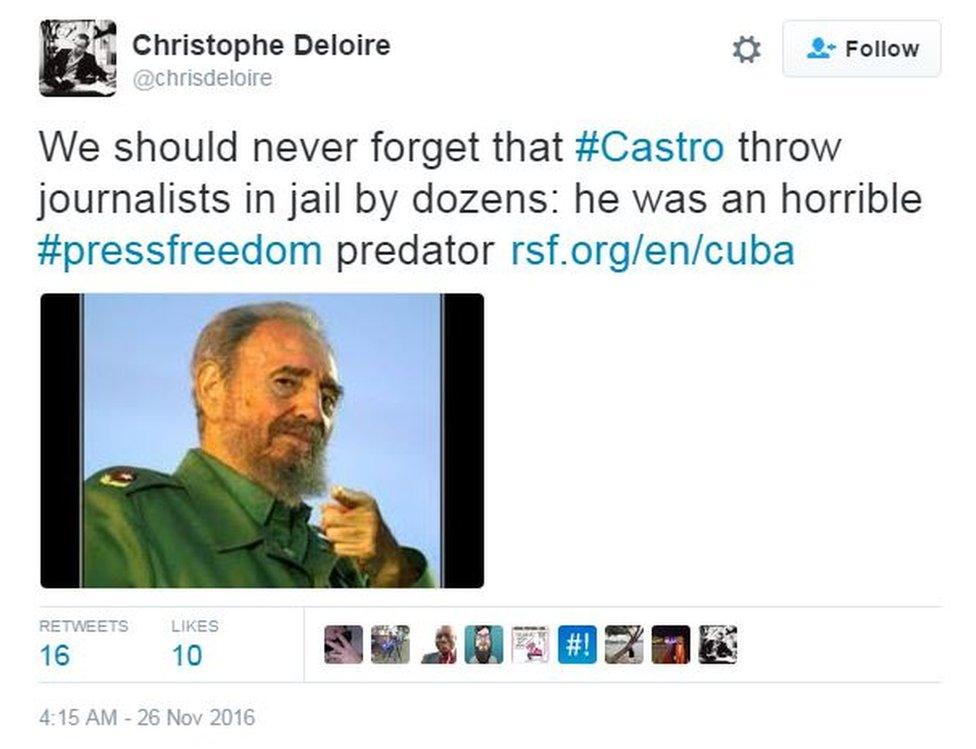
Press freedom activists highlighted Castro's willingness to jail journalists
On Calle Ocho [Eighth Street] in Miami's Little Havana, thousands of people waved Cuban flags in the air, blared salsa music and banged pots in celebration throughout the night.
The party atmosphere drew widespread applause, and some criticism - though the city's mayor appeared to back it wholeheartedly.
Miami Herald reporter Joey Flechas tweeted a quote reportedly from Cuban-born Republican Tomas Regalado, calling Castro "a dictator".
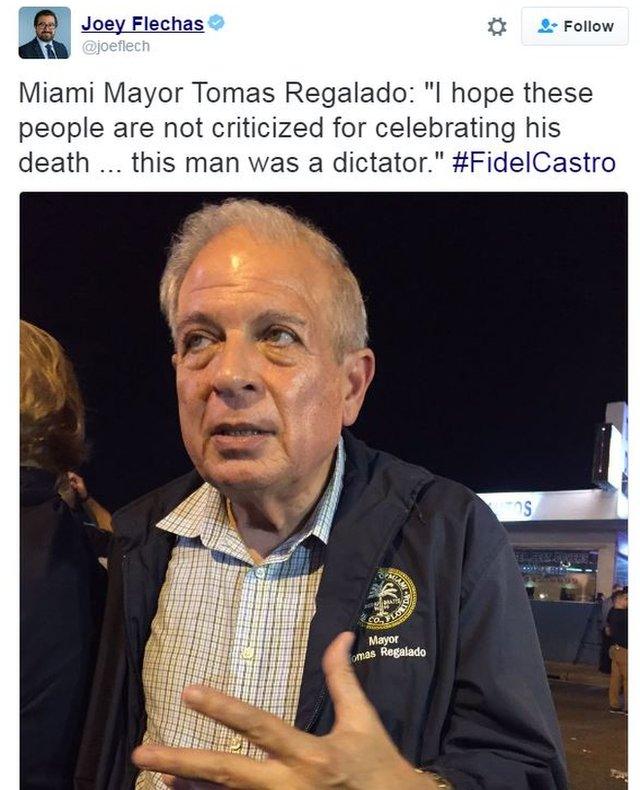
Journalist Joey Flechas of the Miami Herald quoted the city's mayor - not a Castro fan
Little Havana, a neighbourhood in Miami, celebrates Fidel Castro's death
Many Cuban Americans originally fled from Castro's Cuba after the revolution of 1959, seeking political asylum.
Some admitted on social media that their views on the socialist leader were inherited, deeply felt, and personal.
One Latina tweeter noted, "in THIS family, he was the worst!"
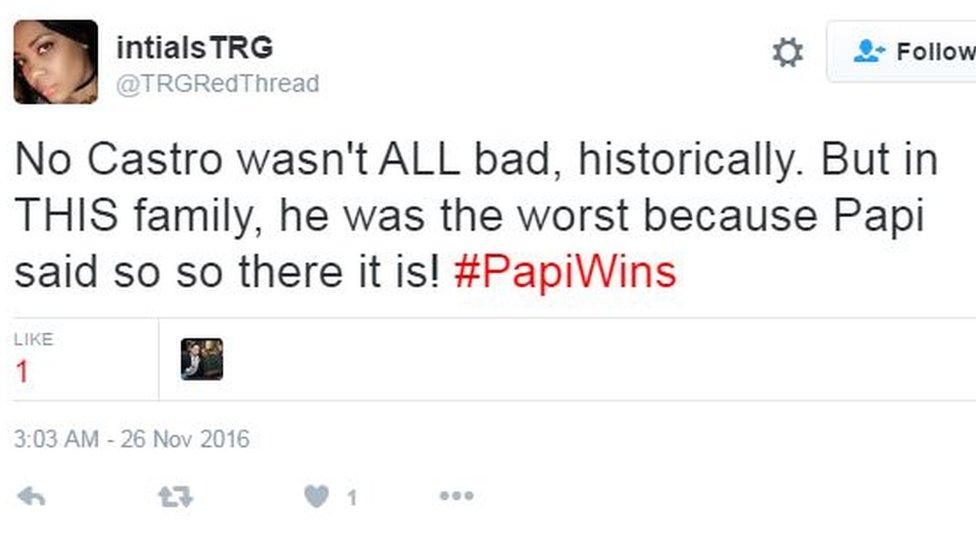
One young Latina woman said she'd inherited her views on Castro from her father

Pans were beaten and Cuban flags waved in Miami's Hispanic-dominated areas
- Published26 November 2016
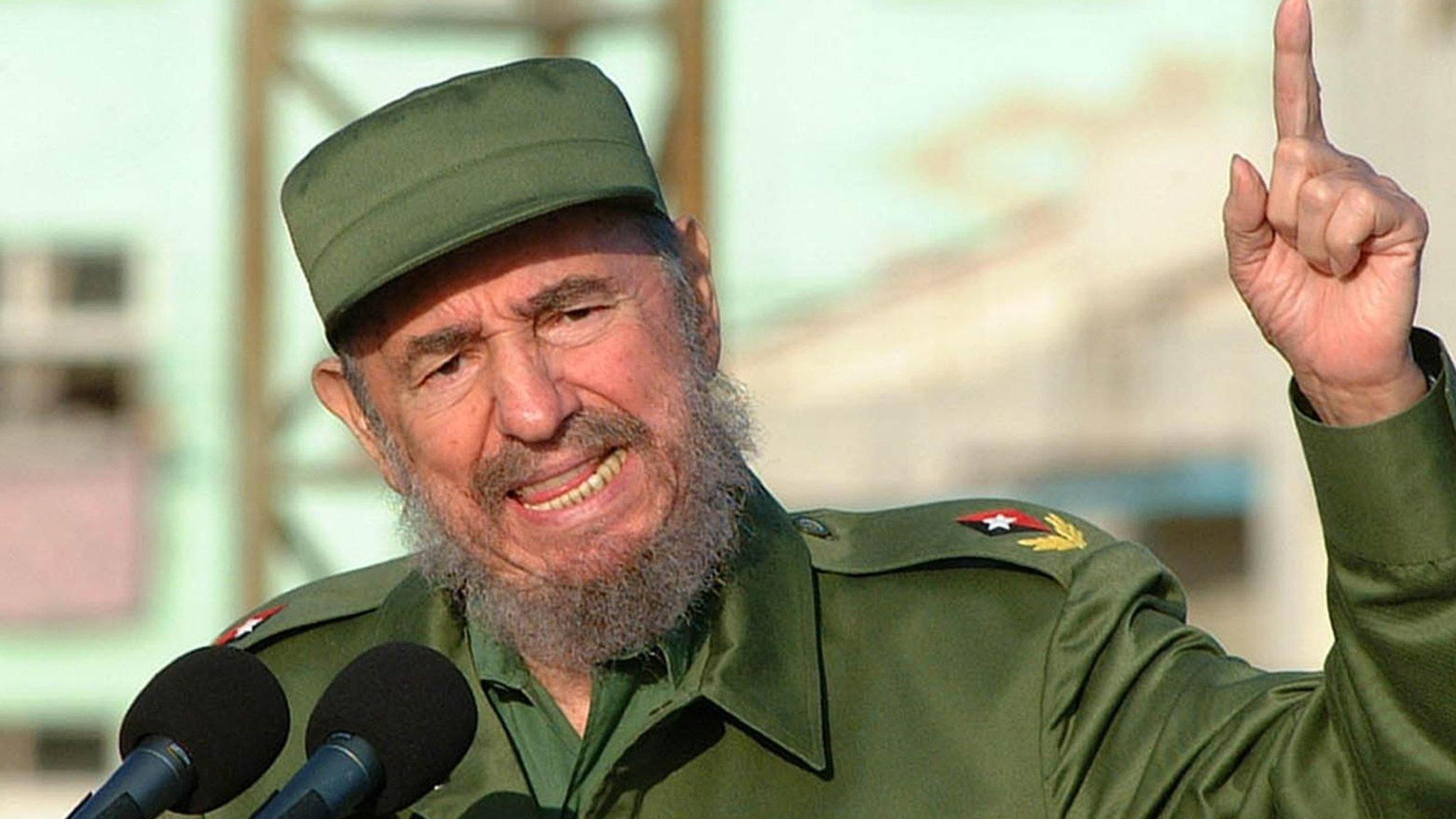
- Published26 November 2016
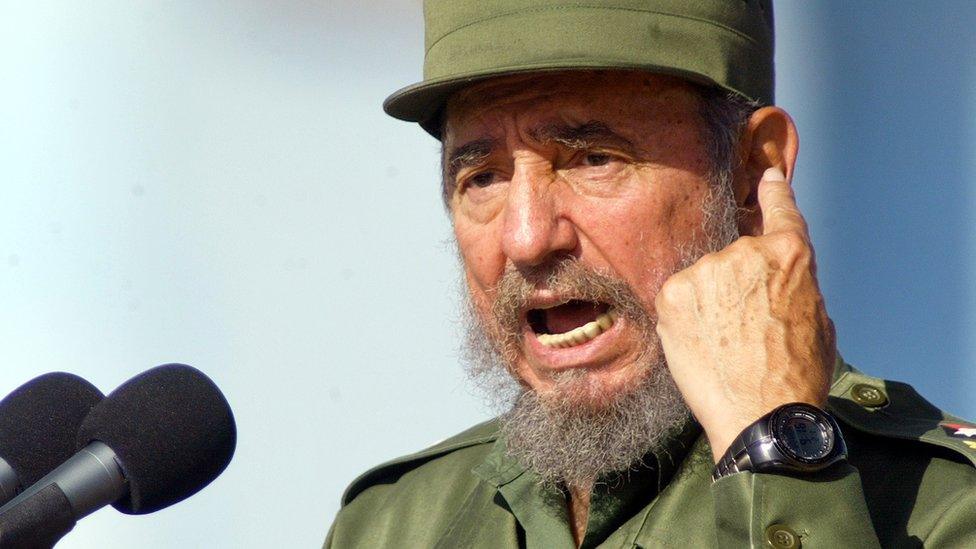
- Published26 November 2016
- Published26 November 2016
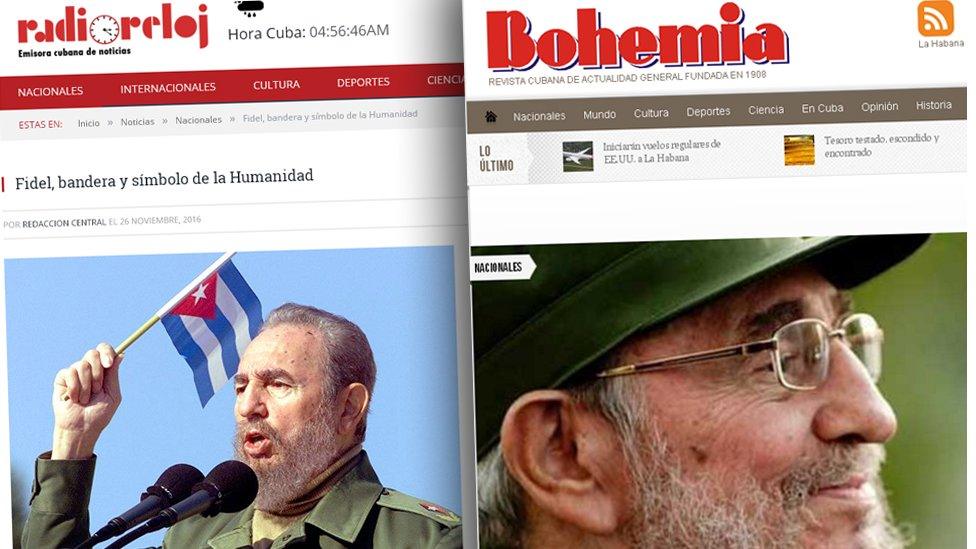
- Published26 November 2016

- Published26 November 2016
